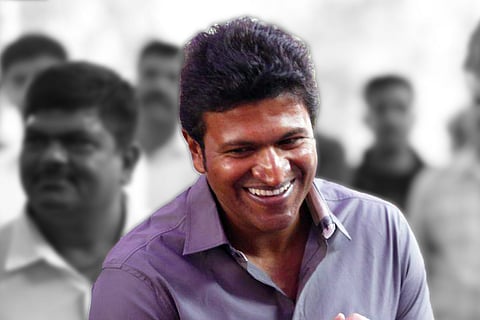

Puneeth Rajkumar’s untimely death due to a heart attack on Friday, October 29 has come as a shock to the whole of Karnataka and outside it as well. The actor, who was only 46 years old, reportedly complained of uneasiness before hitting the gymnasium on Friday.
Puneeth Rajkumar, or Appu as he was fondly known, was a big advocate of fitness and keeping good health. He was known to perform his own stunts in films, and was known for high-intensity workouts. He was also the ambassador of the ‘Prevent Premature Heart Attack’ initiative of the Sri Jayadeva Institute of Cardiovascular Sciences and Research Institute in Bengaluru in 2017. Puneeth’s family has a history of heart attacks, as even his father and Kannada icon Dr Rajkumar passed away due to a heart attack in 2006, at the age of 76. Puneeth’s older brother Shiva Rajkumar had also suffered a heart attack in 2015.
However, lately, there has been a rise in the number of young people suffering heart attacks. Heart attacks are caused by blockages in coronary arteries, which prevent blood and therefore oxygen from reaching the muscles. An unchecked heart attack can lead to a cardiac arrest. The most common factors that can lead to a heart attack include obesity, smoking, unhealthy lifestyles, and a family history of the disease. However, they are mostly caused by a combination of factors, and there is no one formula to keep healthy that would suit everybody. In Puneeth's case, many doctors have pointed out that he has a genetic predisposition as others in his family too had cardiac issues, and was therefore more susceptible.
However, for those interested in high intensity workouts, doctors say that the best principle to follow is moderation and keeping regular habits, as even high intensity workouts and irregular exercise can lead to heart issues. “Because of intense workout, one’s heart can atrophy, like how when you exercise your biceps become big. The same thing can happen to the heart. You can develop thickening of the heart muscles, which when you push harder, can suddenly produce abnormal rhythms,” says Dr Devanand NS, cardiovascular and thoracic surgeon at Manipal Hospitals in Bengaluru. However, the thickening of the heart muscles, known as ‘athlete’s heart’, occurs only in those who engage in rigorous and regular workouts.
There is also a condition known as hypertrophic cardiomyopathy, a genetic issue that causes the heart muscle to become abnormally thick, making blood flow difficult. The prevalence is about 1 in 500 people, and this condition can also cause sudden cardiac arrest.
He adds that heart attacks in healthy people who have less buildup of plaque — fat deposits — can be more severe than for those who have a history of coronary blockages. “These kinds of heart attacks are invariably bad because your heart is not used to lack of blood supply ever in your lifetime. Someone with a three-vessel block, or 50-70% coronary block, will survive a heart attack because their heart is used to a little lack of blood supply, some kind of natural adjustment in the heart muscle would have come about. On the other hand, someone whose coronary arteries are otherwise perfectly healthy, suddenly if there is an incident, they will have a very bad heart attack,” he explains.
Dr CN Manjunath of the Jayadeva Institute also echoed this. He said that irregular exercise, i.e. remaining sedentary for a while and then suddenly engaging in intense exercise, can cause more strain to the heart than regular high-intensity exercise. However, it cannot be said that any one factor contributes more towards the likelihood of a heart attack than another. However, he also said that intense workouts, especially isometric ones involving weights, etc., can be a trigger for plaque buildup to rupture, resulting in a heart attack.
Constant stress is also a significant factor that contributes to heart attacks.
According to Dr Manjunath, at least 30% of heart patients who come to the Jayadeva Institute are below the age of 45, and in the last 5-6 years, they have seen an almost 20% increase in instances of heart attacks in younger people. According to a study conducted on 2,000 patients between 2017 and 2019 by the institute, 30% of young people who suffered heart attacks did not have any conventional risk factors such as high cholesterol, hypertension, etc.
Puneeth Rajkumar’s unexpected death has brought questions of what a healthy lifestyle means. Dr Devanand says, “Exercise is not bad, because of what happened to Puneeth. You should do what is required for you. What suits one may not suit another. I think there is only one lesson here — everything in moderation is good.”